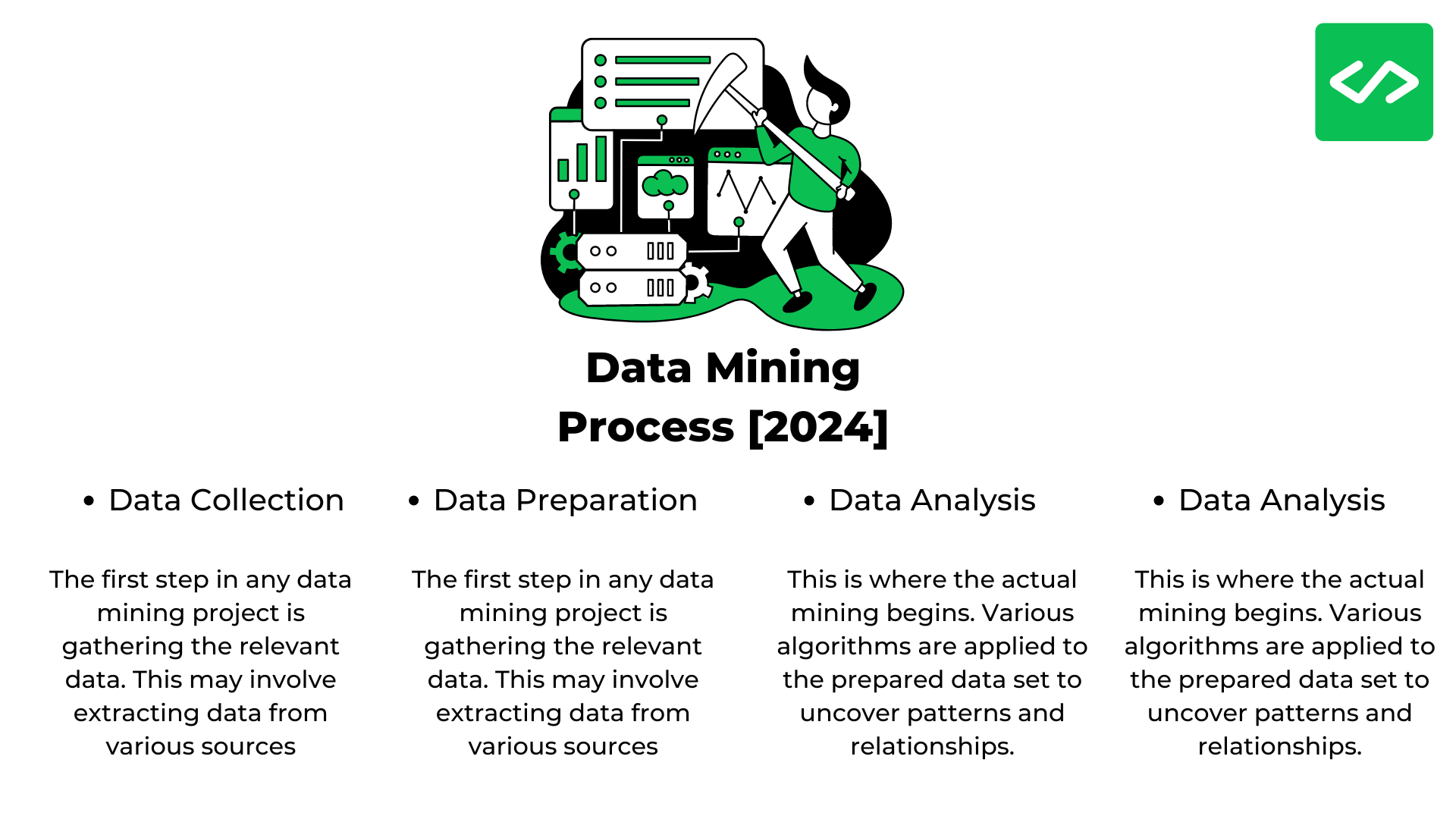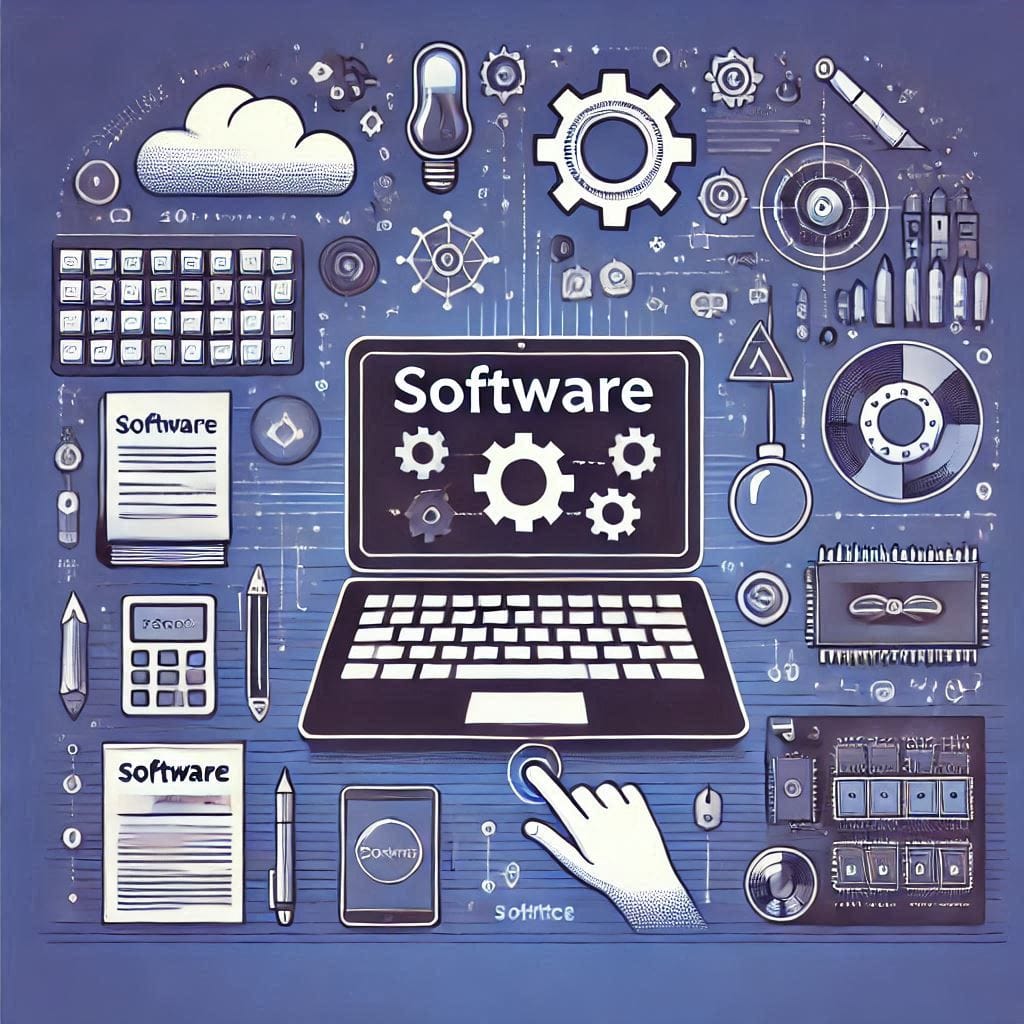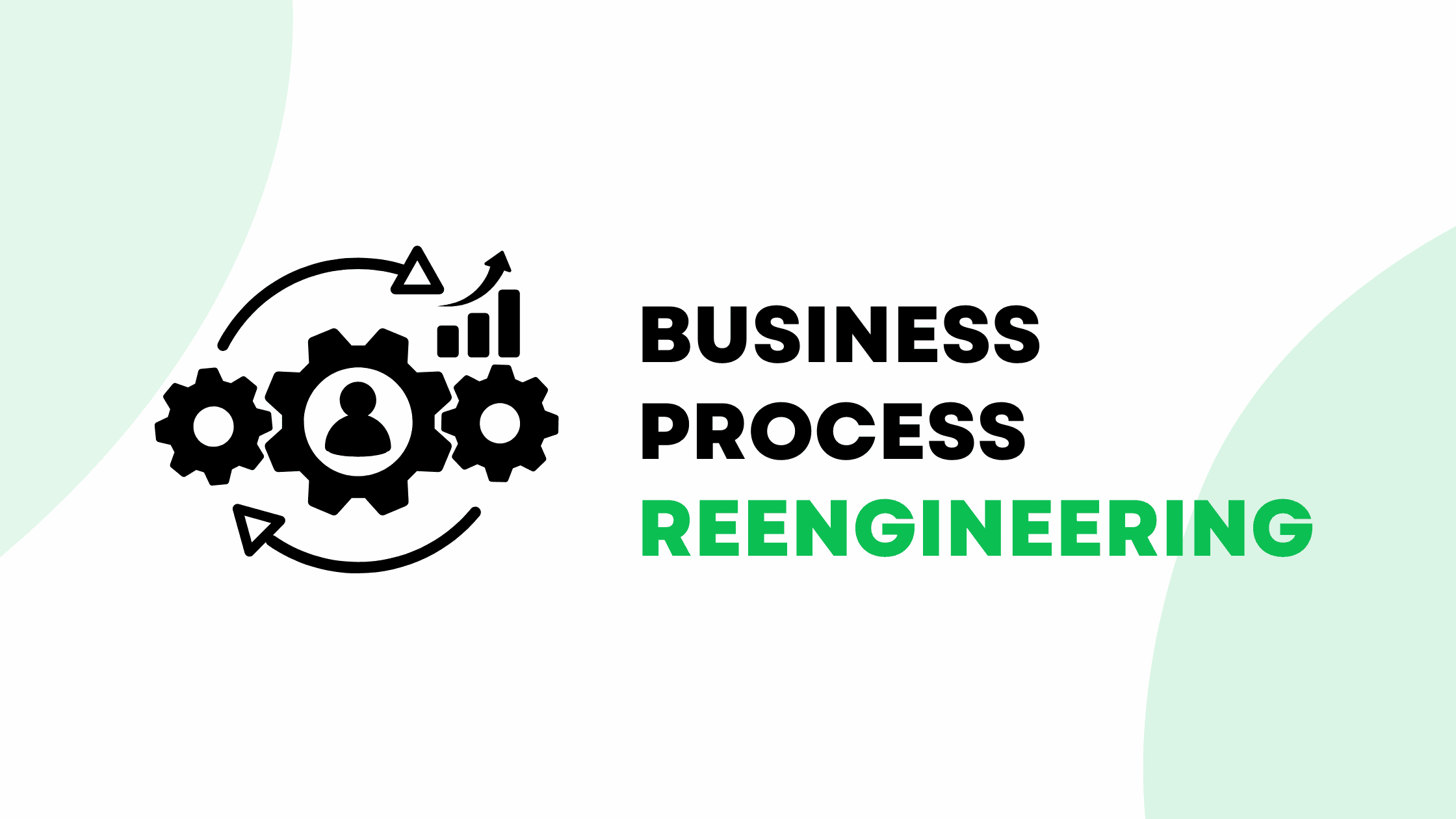Data Mining Concepts and Techniques in 2024 – Ultimate Guide
In today’s digital age, data has become the new gold. But unlike physical gold, the value of data lies not in its raw form, but in the insights we can extract from it. This is where data mining comes into play. Data mining is the process of discovering valuable patterns, correlations, and insights from large data sets. As businesses and organizations collect ever-increasing volumes of data, the ability to extract meaningful information has become crucial. Let’s dive deep into the world of data mining and explore its concepts, techniques, and applications.

The Essence of Data Mining
At its core, data mining is about transforming raw data into useful knowledge. It combines elements of statistics, artificial intelligence, and database management to analyze large amounts of data and uncover hidden patterns. Data mining is a key component of the broader field of knowledge discovery in databases (KDD).
Data mining uses sophisticated algorithms to sift through massive data sets, identifying patterns that might be invisible to the human eye. These patterns can reveal valuable insights about customer behavior, market trends, scientific phenomena, and much more.

Key Concepts in Data Mining
- Big Data: The growth of big data has made data mining more important than ever. With the explosion of digital information, organizations are sitting on goldmines of data, but they need effective tools to extract value from it.
- Data Warehouse: Many organizations store their historical data in a data warehouse, which serves as a central repository for data mining. A data warehouse consolidates data from various sources, making it easier to perform comprehensive analyses.
- Data Preparation: Before mining can begin, data often needs to be cleaned and prepared. This involves removing errors, handling missing values, and transforming data into a suitable format for analysis.
- Algorithms: Data mining relies on sophisticated algorithms to analyze data sets. These algorithms can detect patterns, classify data points, and make predictions based on historical trends.

The Data Mining Process
The data mining process is not a one-step operation but rather a sequence of steps that transform raw data into actionable insights. Let’s break down this process:
- Data Collection: The first step in any data mining project is gathering the relevant data. This may involve extracting data from various sources such as databases, data warehouses, or even unstructured data sources like social media feeds.
- Data Preparation: Once the data is collected, it needs to be prepared for analysis. This step involves:
- Cleaning the data to remove errors and inconsistencies
- Handling missing values
- Transforming data into a consistent format
- Reducing the data set to include only relevant variables
- Data Analysis: This is where the actual mining begins. Various algorithms are applied to the prepared data set to uncover patterns and relationships.
- Pattern Discovery: The analysis phase often reveals multiple patterns. In this step, data scientists evaluate these patterns to identify those that are truly meaningful and relevant to the business question at hand.
- Knowledge Presentation: The final step is presenting the discovered knowledge in a format that is easily understandable by decision-makers. This often involves data visualization techniques to clearly communicate complex findings.
Data Mining Techniques
Data mining techniques include a wide range of methods for extracting insights from data. Some of the most common techniques include:
- Classification: This technique classifies data based on predefined categories. For example, a bank might use classification to determine whether a loan applicant is a high or low credit risk.
- Clustering: Clustering groups similar data points together without predefined categories. This can be useful for market segmentation, grouping customers with similar behaviors.
- Association Rule Mining: This technique identifies relationships between variables in large data sets. A classic example is the “beer and diapers” phenomenon, where data mining revealed that young fathers often bought beer when purchasing diapers.
- Regression: Regression techniques predict a continuous value based on other variables. For instance, predicting house prices based on features like location, size, and age.
- Anomaly Detection: This technique identifies data points that significantly differ from the majority of the data. It’s particularly useful in fraud detection and system health monitoring.
Each of these techniques can be used to extract different types of insights from data sets, and often, multiple techniques are used in combination to gain a comprehensive understanding of the data.
Applications of Data Mining
Data mining has a wide range of applications across various industries. Its ability to uncover hidden patterns and predict future trends makes it invaluable in many fields:
- Retail: Analyzing consumer data to improve marketing strategies, optimize product placement, and predict future sales trends. For example, a retailer might use data mining to analyze purchase patterns and develop targeted marketing campaigns.
- Finance: Detecting fraudulent transactions, assessing credit risk, and predicting market trends. Banks and financial institutions use data mining extensively to protect themselves and their customers from fraud.
- Healthcare: Predicting disease outbreaks, identifying high-risk patients, and improving patient care. Data mining can help healthcare providers identify patterns in patient data that might indicate a need for early intervention.
- Social Media: Understanding user behavior and preferences, improving content recommendations, and detecting trends. Social media companies use data mining to analyze vast amounts of user-generated content and interactions.
- Manufacturing: Optimizing production processes, predicting equipment failures, and improving quality control. Data mining can help manufacturers identify factors that contribute to production defects or inefficiencies.
- Telecommunications: Predicting customer churn, optimizing network performance, and developing new services based on usage patterns.
- Education: Analyzing student performance data to improve learning outcomes, predict at-risk students, and personalize education experiences.
Examples of Data Mining in Action
Let’s look at some specific examples of how organizations use data mining:
- A retailer uses data mining to analyze purchase patterns and optimize product placement. By identifying which products are often bought together, they can arrange store layouts to increase sales.
- A bank applies data mining techniques to assess credit risk for loan applications. By analyzing historical data on loan repayments, they can more accurately predict which applicants are likely to default.
- A social media company uses data mining to recommend content to users. By analyzing a user’s past interactions, they can suggest posts, videos, or connections that the user is likely to find interesting.
- A healthcare provider uses data mining to identify patients at high risk of developing certain conditions. This allows for early intervention and preventive care.
- An e-commerce platform uses data mining to detect fraudulent transactions. By identifying unusual patterns in purchase data, they can flag suspicious activities for further investigation.
Data Mining Software and Tools
Various data mining software options are available, ranging from open-source tools to enterprise-level solutions. These tools often incorporate machine learning algorithms to enhance their analytical capabilities. Some popular data mining software includes:
These tools provide user-friendly interfaces for data preparation, analysis, and visualization, making data mining more accessible to users without extensive programming knowledge.
The Importance of Data Science in Data Mining
Data scientists play a crucial role in the data mining process. They combine expertise in statistics, programming, and domain knowledge to extract meaningful insights from data. A data scientist’s responsibilities in a data mining project might include:
- Defining the problem and identifying relevant data sources
- Preparing and cleaning the data
- Selecting appropriate data mining techniques and algorithms
- Interpreting the results and communicating insights to stakeholders
Data scientists also play a key role in ensuring that data mining practices are ethical and comply with data privacy regulations.
Data Mining and Machine Learning
While data mining and machine learning are related, they’re not identical. Data mining often uses machine learning algorithms, but it also encompasses other techniques for knowledge discovery. Machine learning focuses on developing algorithms that can learn from and make predictions or decisions based on data. Data mining, on the other hand, is a broader process that includes data preparation, analysis, and interpretation.
That said, the lines between data mining and machine learning are increasingly blurring. Many modern data mining tools incorporate advanced machine learning algorithms, including deep learning techniques, to improve their analytical capabilities.
Challenges in Data Mining
Despite its benefits, data mining faces several challenges:
- Dealing with unstructured data: Much of the data generated today is unstructured (e.g., text, images, videos). Mining insights from this type of data requires specialized techniques and can be more challenging than working with structured data.
- Ensuring data privacy and security: As data mining often involves sensitive personal information, ensuring privacy and compliance with data protection regulations is crucial.
- Managing the sheer volume of data produced daily: The exponential growth of data can overwhelm traditional data mining techniques and infrastructure.
- Interpreting complex patterns discovered through mining: Sometimes, the patterns uncovered by data mining algorithms can be difficult for humans to interpret or explain.
- Data quality issues: The accuracy of data mining results depends heavily on the quality of the input data. Poor quality data can lead to misleading or incorrect insights.
- Choosing the right algorithms: With numerous data mining techniques available, selecting the most appropriate method for a given problem can be challenging.
The Future of Data Mining
As the amount of data continues to grow exponentially, data mining will become even more critical. Several trends are shaping the future of data mining:
- Artificial Intelligence and Machine Learning: Advancements in AI and machine learning are likely to enhance data mining capabilities, allowing for more sophisticated analysis of massive data sets. We can expect to see more automated data mining processes and improved pattern recognition capabilities.
- Real-time Data Mining: As businesses increasingly need to make decisions based on up-to-the-minute data, real-time data mining techniques are becoming more important. This involves analyzing data as it’s generated, rather than working with historical data sets.
- Edge Computing: With the growth of Internet of Things (IoT) devices, there’s a trend towards performing data mining closer to the data source (at the “edge” of the network). This can reduce latency and enable faster decision-making.
- Explainable AI: As data mining algorithms become more complex, there’s a growing need for “explainable AI” – techniques that can help humans understand how AI-driven data mining models arrive at their conclusions.
- Integration with Big Data Technologies: Data mining techniques are increasingly being integrated with big data technologies like Hadoop and Spark, enabling analysis of even larger and more diverse data sets.
Data Mining in the Era of Big Data
The growth of big data has led to new opportunities and challenges in data mining. Techniques for mining structured and unstructured data are continually evolving to keep pace with the increasing volume and complexity of data.
Big data is characterized by the “Three Vs”: Volume (the amount of data), Velocity (the speed at which new data is generated), and Variety (the different types of data). Data mining in the big data era must contend with all three of these aspects:
- Volume: Traditional data mining techniques may struggle with extremely large data sets. New approaches, like distributed computing and sampling techniques, are being developed to handle massive volumes of data.
- Velocity: With data being generated at unprecedented speeds, real-time or near-real-time data mining techniques are becoming more important.
- Variety: Data mining must now handle a wide variety of data types, from structured database records to unstructured text, images, and videos.
Ethical Considerations in Data Mining
As data mining becomes more powerful and pervasive, it’s crucial to consider the ethical implications:
- Privacy: Data mining often involves analyzing personal data. It’s essential to ensure that individuals’ privacy rights are respected and that data is used ethically.
- Bias: Data mining algorithms can sometimes perpetuate or amplify biases present in the training data. It’s important to be aware of this possibility and take steps to mitigate bias.
- Transparency: As data mining increasingly influences decision-making processes, there’s a growing call for transparency in how these algorithms work and make decisions.
- Consent: When mining personal data, it’s important to consider whether individuals have given informed consent for their data to be used in this way.
Conclusion: The Power of Knowledge Discovery
Data mining is a powerful tool for transforming raw data into actionable insights. By uncovering hidden patterns and relationships in data, organizations can make more informed decisions and gain a competitive edge. As we continue to generate ever-larger amounts of data, the importance of effective data mining techniques will only grow.
Whether you’re a data scientist, a business analyst, or simply curious about the potential of data, understanding data mining is key to navigating our data-driven world. By harnessing the power of data mining, we can unlock the hidden treasures buried within our vast data sets, driving innovation and insight across industries.
As we look to the future, data mining will undoubtedly continue to evolve, incorporating new technologies and techniques to handle the ever-increasing volume and complexity of data. But at its core, the goal of data mining will remain the same: to turn the raw material of data into the gold of knowledge and insight.











